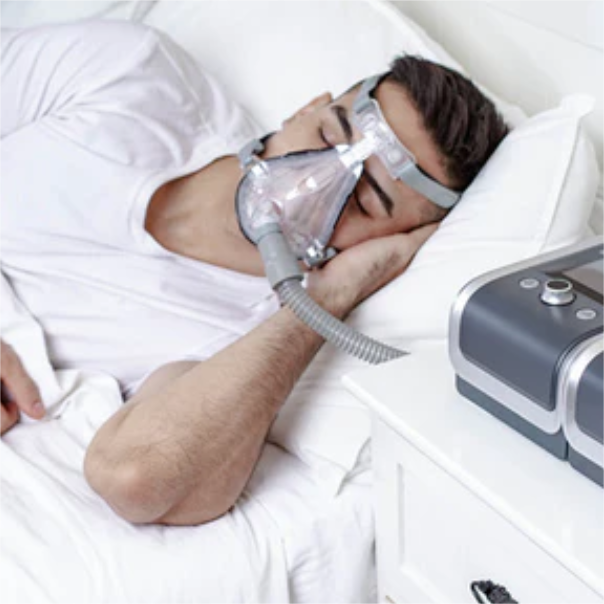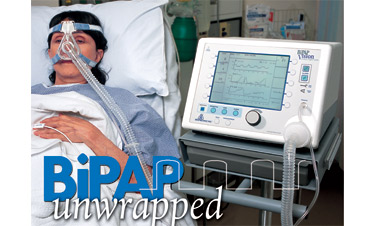Hassle-free BiPAP Rental Solutions with Quick Delivery
Hassle-free BiPAP Rental Solutions with Quick Delivery
Blog Article
Bipap vs. CPAP: Which Is the Ideal for Your Sleep Condition?
When browsing the complexities of rest problems, the choice in between BiPAP and CPAP therapy is a vital factor to consider. While CPAP offers a steady air movement suitable for obstructive sleep apnea, BiPAP's dual stress settings might enhance comfort for those with even more elaborate respiratory concerns.
Comprehending Rest Disorders
Sleep problems encompass a variety of conditions that interfere with normal rest patterns, affecting both the high quality and period of rest. These disorders can materialize in various types, including sleeping disorders, rest apnea, narcolepsy, agitated leg disorder, and parasomnias. Each condition presents special obstacles, commonly leading to considerable daytime fatigue, cognitive impairment, and emotional disruptions.
Sleeplessness is defined by problem dropping or staying asleep, while sleep apnea entails repeated disturbances in breathing throughout sleep, typically leading to fragmented remainder. Narcolepsy, on the various other hand, is noted by too much daytime sleepiness and unexpected rest strikes. Restless leg syndrome causes uneasy experiences in the legs, prompting an unmanageable desire to relocate them, which can additionally hinder the ability to drop off to sleep.
The impact of sleep problems expands past specific health, influencing general efficiency, connections, and lifestyle. Comprehending the specific nature of each condition is vital for reliable medical diagnosis and treatment. As rest health comes to be increasingly recognized as a vital part of total wellness, resolving these problems is crucial for enhancing both sleep quality and day-to-day functioning.
Exactly How CPAP Works
Continuous Positive Respiratory Tract Pressure (CPAP) therapy is frequently used as a main therapy for obstructive sleep apnea (OSA) The system of CPAP involves using an equipment that delivers a steady stream of air with a mask worn throughout rest. This air flow keeps favorable stress in the respiratory tract, protecting against the collapse or obstruction of the throat that can take place throughout sleep.
When a patient inhales, the CPAP device provides a continual flow of air, ensuring that the respiratory tract continues to be open - BiPAP Rental. This not just minimizes the symptoms of OSA, such as snoring and interfered with sleep patterns, but additionally decreases the associated health and wellness risks, consisting of cardio problems and daytime exhaustion
The pressure setups on a CPAP device can be personalized to meet private client demands, typically determined with a rest research. Overall, CPAP therapy has been shown to considerably enhance the top quality of sleep and total health for individuals suffering from obstructive sleep apnea.
Just How BiPAP Works
BiPAP, or Bilevel Positive Air Passage Pressure, is a specific kind of non-invasive ventilation that is particularly valuable for people with problems such as intricate sleep apnea or respiratory disorders. Unlike CPAP, which delivers a continuous stream of air at a solitary stress, BiPAP provides 2 distinctive stress settings: a higher inspiratory stress for inhalation and a lower expiratory stress for exhalation. This dual-pressure technique permits for simpler breathing, reducing the initiative needed during exhalation.
The device runs through a mask fitted over the nose or mouth, linked to a device that produces air pressure. When the person breathes in, the equipment provides the greater pressure to assist with air movement, ensuring that the respiratory tract remains open. Upon exhalation, the maker immediately decreases the pressure, making it extra comfortable for the individual to take a breath out.

Secret Differences In Between BiPAP and CPAP

On the other hand, BiPAP (Bilevel Favorable Respiratory tract Pressure) provides 2 different pressure setups: one for breathing and a lower one for exhalation. This double pressure system permits even more comfy breathing, particularly for clients that battle with breathing out versus a continual stress. BiPAP is commonly recommended for clients with complicated rest apnea, persistent obstructive pulmonary condition (COPD), or those that call for additional support throughout rest.
In addition, the intricacy of BiPAP gadgets typically results in a higher price and calls for a lot more cautious titration than CPAP. BiPAP Rental. Recognizing these essential distinctions can aid in recognizing which device may be better for certain rest problems, establishing the foundation for educated treatment choices
Picking the Right Treatment
The choice between BiPAP and CPAP therapy mostly hinges on the particular features of the rest condition, the person's total health and wellness, and their comfort with the tool. CPAP, which delivers a continuous stream of air, is commonly suggested for obstructive sleep apnea (OSA)
Conversely, BiPAP supplies two levels of stress: one for inhalation and a reduced one for exhalation. This dual stress system is valuable for people with complicated rest apnea or those who experience trouble breathing out against a continual stress. In addition, BiPAP is commonly recommended for individuals with respiratory system problems, such as chronic obstructive pulmonary condition (COPD), where varying pressure settings can boost comfort and conformity.
Inevitably, a comprehensive evaluation by a rest specialist, including a sleep research study, can aid identify which treatment lines up best with the person's needs. Aspects such as convenience, ease of usage, and particular clinical problems should likewise be thought about to enhance therapy end results.
Verdict
In summary, both BiPAP and CPAP serve unique purposes in the administration of rest problems. CPAP works my site for obstructive rest apnea via learn the facts here now consistent air movement, while BiPAP offers double stress settings that improve comfort for those with complex sleep apnea or breathing problems. The option in between these treatments need to be led by specific demands and problems, necessitating a thorough evaluation by a sleep professional to make certain ideal therapy results and enhanced quality of sleep.

Generally, CPAP therapy has been revealed to significantly improve the top quality of sleep and total health and wellness for individuals enduring from obstructive sleep apnea.
BiPAP is commonly recommended for clients with complicated rest apnea, chronic obstructive lung condition (COPD), or those that require additional support throughout sleep.
CPAP is effective for obstructive sleep apnea through constant air movement, while BiPAP provides double pressure settings that enhance comfort for those with intricate sleep apnea or respiratory problems.
Report this page